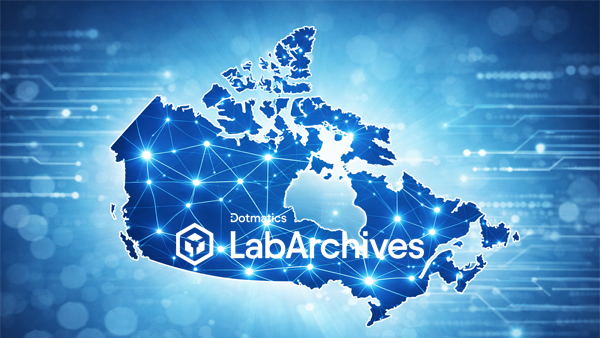In an era where research reproducibility, data integrity, open science initiatives and data security requirements are constantly evolving, more labs are moving away from paper notebooks and embracing digital tools. Microsoft OneNote—a widely used note-taking app—is sometimes mistaken for a viable electronic lab notebook (ELN) due to its flexibility and accessibility. However, before choosing OneNote as a digital research solution, PIs and Lab Managers should consider how OneNote falls short of the demands of secure scientific research documentation.
Here are some reasons why OneNote isn’t a proper ELN—and what researchers should consider instead.
Lack of Permanent Audit Trails
Scientific research requires detailed version control and immutable time-stamped audit logs for every data entry. ELNs are built with this in mind—ensuring traceability, compliance, and accountability.
Where OneNote falls short:
There is no immutable audit trail. Users can delete or overwrite data accidentally or intentionally without a trace, which undermines data integrity and regulatory requirements.
Noncompliance with Research Standards
Many research institutions and funding agencies (e.g., NIH, FDA, NSF, CIHR, etc.) require labs to meet standards like 21 CFR Part 11, GLP, or HIPAA when handling sensitive data.
Where OneNote falls short:
OneNote was not designed for regulated environments and lacks features like electronic signature validation, controlled user roles, and data immutability—making it noncompliant with key regulations.
Limited Collaboration Controls
Collaboration is essential in research, but it must be controlled, permissioned, and auditable.
Where OneNote falls short:
While OneNote supports real-time editing, it lacks granular role-based access control (RBAC) and does not track individual user actions in shared notebooks—creating both security and reproducibility risks.
No Built-In Support for Scientific Workflows
ELNs are purpose-built to support experimental design, protocol management, reagent tracking, and integration with lab instruments,LIMS systems and scientific software.
Where OneNote falls short:
There’s no native support for protocols, sample data structures, templates for experiments, or integration with lab tools. OneNote is a blank canvas, which places an unsustainable burden on researchers to manually structure their entries.
Data Portability & Longevity Risks
Research data must be preserved for years—or decades—for validation, compliance, and intellectual property purposes.
Where OneNote falls short:
There’s limited export capability in structured formats (JSON, XML, etc.), and no guarantee that OneNote’s file structure will be supported long-term by institutional repositories or future platforms and as members leave if notebooks are not transferred they can easily be lost.
What to Look for in a purpose-built ELN
If your lab is going to go digital, consider a system that supports the full lifecycle of research. A proper ELN should include:
- Secure, compliant audit trails
- Granular user permissions
- Custom templates and protocol support
- Integration with inventory and scheduling tools
- Institutional archiving and exportability - to ensure PIs and their labs preserve all data
- Certifications for IT and funding agency approval (FedRAMP, 21 CFR Part 11, HIPAA)
OneNote vs. LabArchives: A Quick Comparison
Feature | OneNote | LabArchives ELN |
Scientific Audit Trail | ❌ No | ✅ Yes |
Aligns with 21 CFR Part 11 / HIPAA | ❌ No | ✅ Yes |
Role-Based Access Control | ⚠️ Basic | ✅ Advanced |
Experiment Templates | ❌ No | ✅ Yes |
Integration with Lab Inventory & Scheduling | ❌ No | ✅ Yes (Inventory + Scheduler) |
Institutional Archiving Support | ❌ No | ✅ Yes |
Research-Centric Design | ❌ General-purpose | ✅ Built for science |
Save time with advanced searching of multiple notebooks | ❌ No | ✅ Yes |
Final Thoughts: Choose Tools Designed for Science
OneNote may be convenient, but convenience can’t replace compliance, traceability, or scientific rigor. As funding agencies and institutions push for better data stewardship and reproducibility, labs need more than just a digital notebook—they need a purpose-built ELN.
LabArchives ELN is one such solution—trusted by over 750,000 researchers in 500+ institutions, adopted by the NIH, and built for everything from teaching labs to government research. With FedRAMP Moderate Authorization, institutional integrations, and user-friendly design, it’s the smarter alternative to general-purpose note-taking tools.
Ready to make the switch?
Explore how LabArchives can easily transform your lab’s documentation while keeping it compliant, ensure secure collaboration, and work is reproducible.
Disclaimer: Microsoft and OneNote are trademarks of Microsoft Corporation. All product names, logos, and brands are property of their respective owners. Use of these names, logos, and brands does not imply endorsement. LabArchives is not affiliated with, sponsored by, or endorsed by Microsoft Corporation.






